Top CSS Alternative Solutions for Modern Web Development
Cascading Style Sheets (CSS) is the cornerstone of web design, providing a simple yet powerful mechanism for adding style such as fonts, colors, and spacing to web documents. While indispensable, developers often seek more dynamic, efficient, and expressive ways to manage styles. This quest leads many to explore a range of robust CSS alternative solutions that extend its capabilities or offer entirely new paradigms for styling web applications.
Best CSS Alternatives
If you're looking to streamline your styling workflow, enhance maintainability, or add powerful programmatic features to your stylesheets, these alternatives offer compelling reasons to make the switch.

Stylus
Stylus is a revolutionary language that provides an efficient, dynamic, and expressive way to generate CSS. It supports both an indented syntax and regular CSS style, offering flexibility for developers. As a free, open-source solution, Stylus runs across multiple platforms including Mac, Windows, Linux, Web, and Node.JS, making it a versatile CSS alternative for a wide range of projects.

Sass
Sass, short for Syntactically Awesome Style Sheets, is an extension of CSS3 that brings powerful features like nested rules, variables, mixins, and selector inheritance to your stylesheets. It's a free, open-source platform available for Mac, Windows, Linux, and Ruby environments. Sass is widely recognized for significantly enhancing web development workflows by making CSS more organized and maintainable, proving to be an excellent CSS alternative for large-scale projects.

LESS
LESS extends CSS with dynamic behaviors such as variables, mixins, operations, and functions, allowing for more modular and reusable stylesheets. This free, open-source CSS alternative runs on both the client-side (IE 6+, Webkit, Firefox) and server-side, making it highly adaptable for various web development needs. LESS simplifies complex styling tasks and helps create more maintainable codebases.
Choosing the right CSS alternative depends on your project requirements, team's familiarity, and specific features you prioritize. Each offers unique advantages that can elevate your web development experience. We encourage you to explore these powerful tools and find the best fit for your next project.